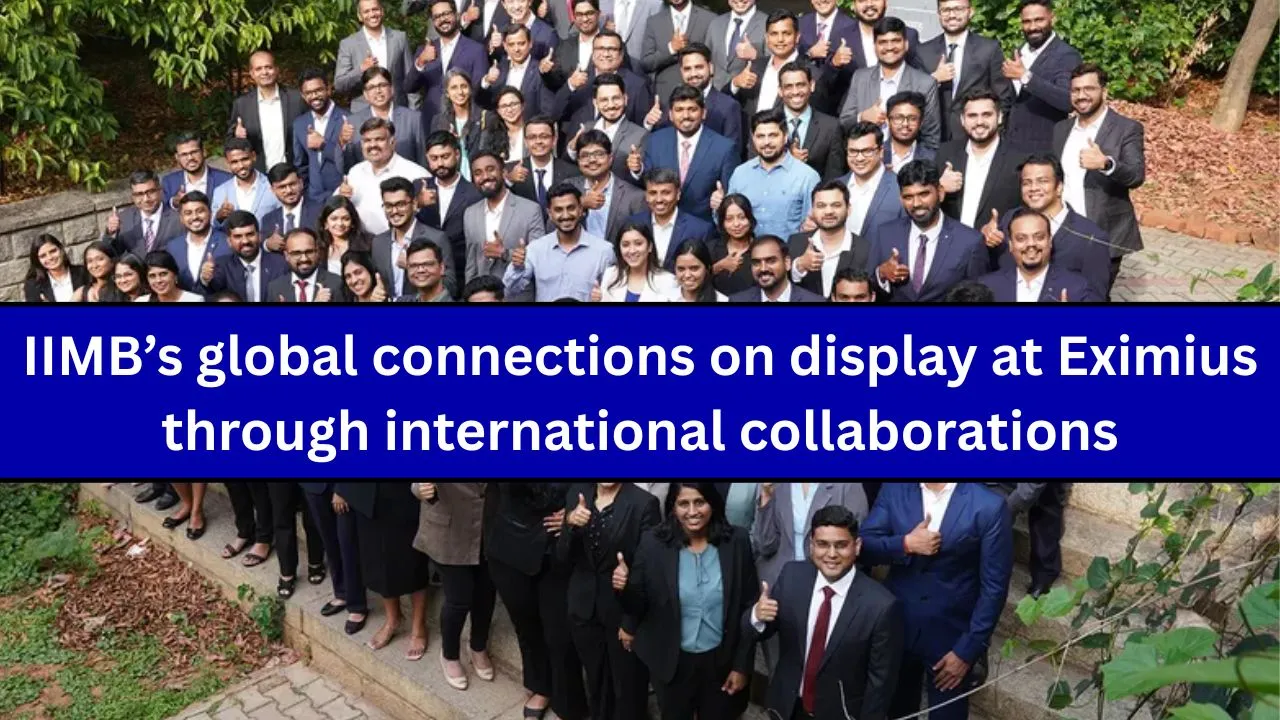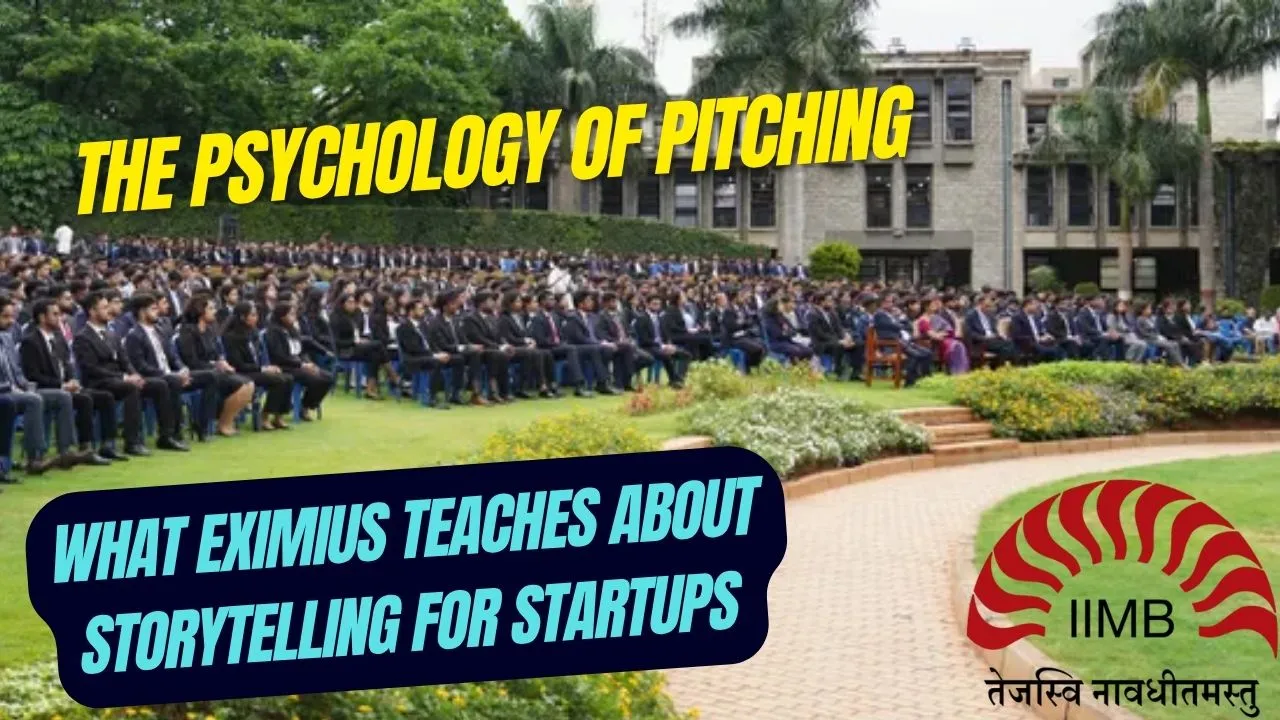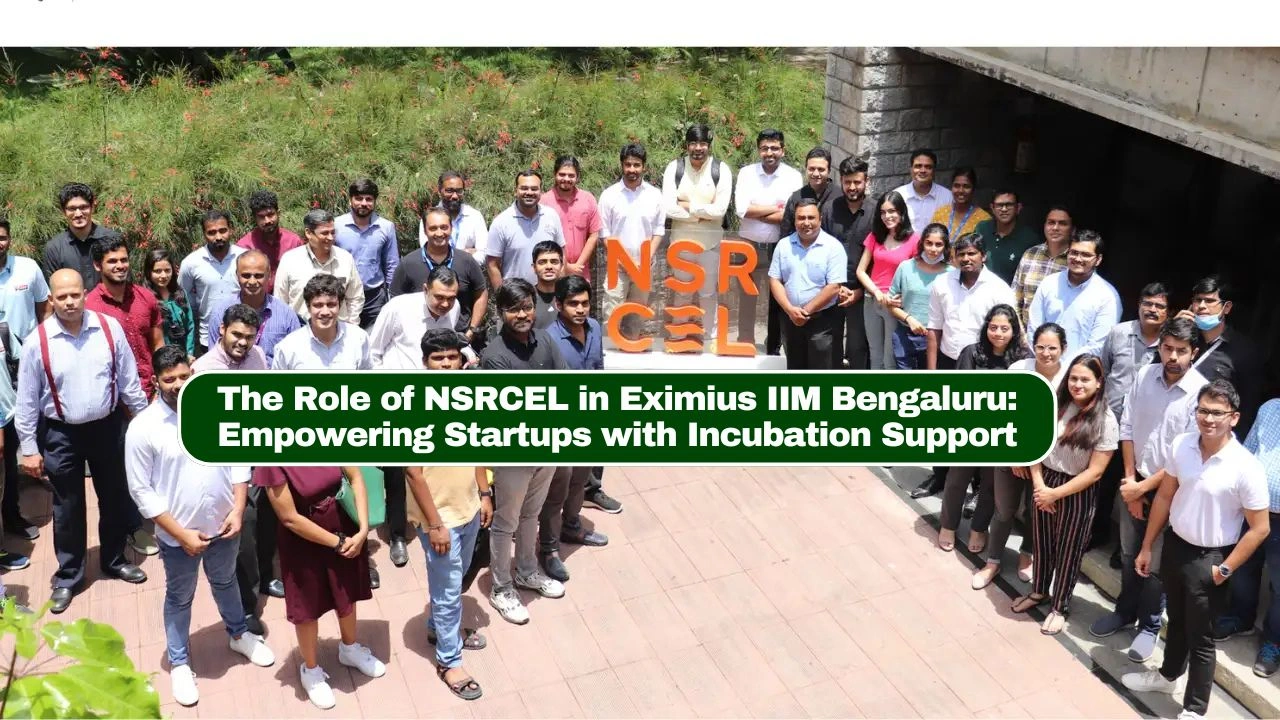AI and the Future of Entrepreneurship is rapidly shifting from a futuristic idea to a present-day reality. As we enter a new era of technological transformation, artificial intelligence is not only altering the way businesses operate but also changing how they begin, evolve, and compete. Eximius 2025, one of the most anticipated entrepreneurship summits in Asia, gave attendees a front-row seat to this transformation, revealing how entrepreneurs are using AI to push boundaries and build smarter, leaner companies.
In this article, we’ll explore how artificial intelligence is reshaping the entrepreneurial journey. From ideation to execution, and from product development to customer experience, AI is becoming a critical part of the startup ecosystem. You’ll get a comprehensive view of the top insights from Eximius 2025, learn how startups are adopting AI in creative ways, and understand what this all means for the future of business innovation.
AI and the Future of Entrepreneurship
The intersection of AI and the Future of Entrepreneurship represents one of the most exciting shifts in business today. Entrepreneurs are no longer relying solely on intuition or traditional methods. AI is stepping in as a co-creator, capable of analyzing trends, solving problems, and unlocking opportunities faster than ever before. At Eximius 2025, industry leaders, founders, and innovators showcased how artificial intelligence is helping businesses achieve sustainable growth, streamline operations, and scale at unprecedented speeds. With AI becoming increasingly accessible, it’s no longer a tool just for big techit’s a necessity for every modern startup.
Overview Table: Key Aspects of AI and Entrepreneurship
| Topic | Insight |
| AI Integration in Startups | AI is embedded in customer service, analytics, and product development. |
| Role in Business Decisions | AI aids in faster, data-driven decision-making for startups. |
| AI in Product Innovation | Startups use AI to design, test, and improve products dynamically. |
| Market Research & Insights | AI tools can conduct competitor analysis and customer segmentation. |
| Cost & Resource Efficiency | Automating tasks reduces operational costs and improves productivity. |
| Personalized Customer Experience | AI enables hyper-personalized user interactions and services. |
| Accessibility of No-Code AI Tools | Founders without coding skills can now build with AI easily. |
| Risks & Ethical Concerns | Data privacy, transparency, and AI bias remain challenges to address. |
AI as the New Business Partner
At Eximius 2025, the idea of AI being just a support tool was replaced with a more compelling visionAI as a business partner. Founders discussed how AI systems are being integrated at every level of startup operations. From generating content and analyzing customer feedback to predicting market shifts and managing inventory, AI now plays a strategic role.
This transition isn’t about replacing human talent, but enhancing it. AI can sort data in seconds, suggest marketing strategies based on real-time trends, and even identify funding opportunities based on investor behavior patterns. With this level of support, entrepreneurs can focus on refining their vision while AI handles the repetitive groundwork.
Smarter Startups: How AI is Reshaping the Launch Process
Launching a startup today looks dramatically different than it did just five years ago. Thanks to AI-powered tools, what once took weeks can now be done in hours. Entrepreneurs at Eximius 2025 emphasized how tools like GPT-based assistants, automated CRM systems, and intelligent design platforms are changing the launch process.
Instead of hiring multiple consultants, founders can use AI to simulate market reactions, fine-tune product ideas, and even build websites or applications using no-code platforms. This means fewer upfront costs and faster go-to-market strategies. With AI in startups becoming more common, the barrier to entry is lower and the path to success more direct.
AI Trends Discussed at Eximius 2025
Industry veterans and new-age founders came together to highlight key AI trends that are shaping tomorrow’s businesses:
- Hyper-personalization: AI is tailoring products and services to individual users in real-time, increasing retention and satisfaction.
- Predictive analytics: Startups are using AI to forecast customer needs, improve logistics, and reduce inventory costs.
- Voice & Visual AI: From AI-generated product videos to voice-activated shopping experiences, media-rich AI solutions are gaining ground.
- AI-driven content creation: Marketing campaigns powered by AI are saving time and boosting results with automated A/B testing.
These innovations reflect how AI in business is no longer a luxury it’s essential for competitive advantage.
Real-World Examples of AI-Driven Startups
One of the highlights at Eximius 2025 was the showcase of startups using AI in bold, practical ways:
- A fintech startup used AI to assess creditworthiness in rural areas by analyzing phone usage patterns instead of traditional credit scores.
- An education tech firm built an adaptive learning platform that modified lesson plans based on student behavior and engagement.
- A logistics company integrated AI with GPS and real-time traffic data to dynamically reroute delivery drivers, reducing fuel costs.
These examples underline how AI and the Future of Entrepreneurship is not theoretical. It’s happening across sectorsfinance, education, logistics, and moredelivering measurable outcomes and deeper customer value.
Benefits of AI for Entrepreneurs
Key advantages of using AI in startups include:
- Improved decision-making: Access to real-time data insights helps founders make smarter choices.
- Automated operations: Tasks like accounting, HR, and customer service can be partially or fully automated.
- Enhanced customer experience: AI tools personalize communication and predict user behavior.
- Faster product testing: Prototypes can be tested virtually with real feedback simulations.
These benefits make it easier to focus on growth while AI takes care of the heavy lifting behind the scenes.
Challenges of Using AI in Startups
Even with its advantages, AI comes with its own set of challenges. Not every founder is tech-savvy, and many still struggle to implement AI effectively. Initial setup costs, especially for custom AI solutions, can be high. There’s also the risk of data misuse, which can damage brand trust.
Ethical concerns, such as algorithmic bias and lack of transparency, were major discussion points at Eximius 2025. To make AI work responsibly, startups must adopt best practices in data protection and build systems with fairness and inclusivity in mind.
Skills Entrepreneurs Need in the Age of AI
Entrepreneurs stepping into the AI-powered future need to embrace a new set of skills. Technical know-how is useful but not mandatory. More important is understanding how AI tools work, interpreting data, and aligning AI capabilities with business goals.
Soft skills like creativity, adaptability, and ethical thinking are equally important. Founders must learn to balance automation with human touch, ensuring their brand stays relatable and trustworthy while scaling with AI.
Final Thought
The message from Eximius 2025 was loud and clear: AI and the Future of Entrepreneurship are inseparable. Artificial intelligence is driving a new wave of business innovation, leveling the playing field for startups worldwide. Whether you’re building your first product or scaling your tenth company, AI can help you move faster, smarter, and with greater confidence.
As we look ahead, the startups that will thrive are those that not only adopt AI but understand how to use it ethically and creatively. Now is the time to experiment, explore, and embrace this transformative shift. Share your thoughts below and dive into more insights that can help you build your future-ready venture.
FAQs
AI streamlines the startup process by automating research, testing ideas, and simplifying development, reducing time and cost significantly.
Yes, many no-code and low-code platforms make it easy for non-tech entrepreneurs to use AI in marketing, analytics, and customer service.
AI is making a major impact in health tech, fintech, ed-tech, retail, and logistics, though its applications span across most sectors.
Tools like ChatGPT, Canva AI, Notion AI, and Zapier offer low-cost solutions for productivity, content creation, and automation.
Yes, over-reliance on AI can lead to reduced human connection and issues with bias or privacy if not managed properly.







